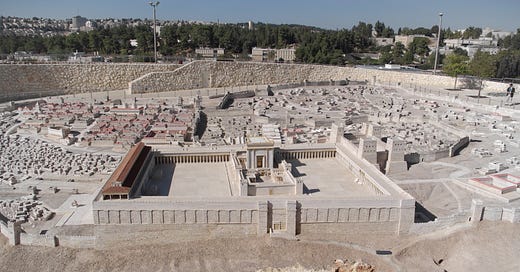The destruction, in the year 70 CE, of the Temple in Jerusalem, was a turning point in world history. It brought the old, sacrifice-based Hebrew faith to an end, enabled Christianity to emerge as a global religion and created a new form of Judaism, based on the supremacy of reason and ideas.
It impacted global politics too. As a result of the Temple’s fall, the anniversary of which falls this week, the Roman commander, Vespasian, was hailed as the new Emperor of Rome. His triumph brought a civil war in the Roman Empire to an end and ushered in a ‘golden age’, laying the foundations for millennia of Western history. It is impossible to imagine what the world would look like today, had the Jerusalem Temple not been destroyed.
The fall of the Temple came after four years of war. The fighting had begun with a series of uprisings against Roman occupation by the people of Judea (the Roman name for Israel). The uprisings needn’t have happened: Roman occupation had its good points as well as its bad, and by and large Rome ruled over a peaceful and submissive empire. That the Judeans found it necessary to rise in revolt was particularly the fault of one man. His name was Gessius Florus, he was the procurator, or financial administrator of the Roman province of Judea. Gessius Florus was a petty official with too much power, and a very nasty piece of work.



